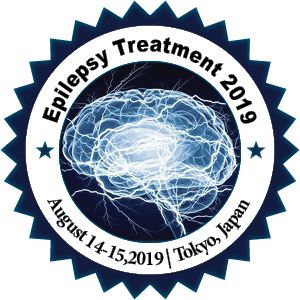Jayachandran Divakaran
Sree Chitra Tirunal Institute for Medical Science & Technology, India
Title: Efficacy of Psycho-education and Pranayama-meditation in Epilepsy Care-An Experimental Study
Biography
Biography: Jayachandran Divakaran
Abstract
Background:. The psycho-social implications of epilepsy are more disabling than the seizures. Psycho-education as a novel approach for patients with epilepsy and their family members has been in practice in the RMNCEC, Department of Neurology,SCTIMST for the past 20 years. Pranayama-meditation has also been practiced in this center for the past 7 years with proven efficacy in controlling seizures. (Rajesh, Jayachandran et al(2006, JACM). Design: The study followed a prospective, randomized experimental research design involving two experimental groups (Psycho-education and Pranayama-Meditation) and a common control group. Tools used: Eight standardized scales/inventories were used to assess the efficacy of both the interventions. Subjects for Experimental Study: Thirty six patients (20 males and 16 females), age range 16-35 years with an established diagnosis of epilepsy with at least two seizures during the past one year. Interventions: 1. Psycho-education for patients with epilepsy and their family members. 2. Pranayama - Meditation) for 20 minutes twice daily (morning and evening). Results: Out of the 28 dependent psycho-social variables tested with different scales/inventories there were statistically significant positive changes in more than half of the variables either in ANOVA or ANCOVA or in both in the psycho-education group. Two variables (Trait and Total Anxiety) recorded significant changes in meditation group, which is another major finding of the study. Conclusion: The study revealed efficacy of both intervention techniques, but psycho-education was found to be more effective than pranayama-meditation in improving psycho-social status and QOL of patients with epilepsy.

